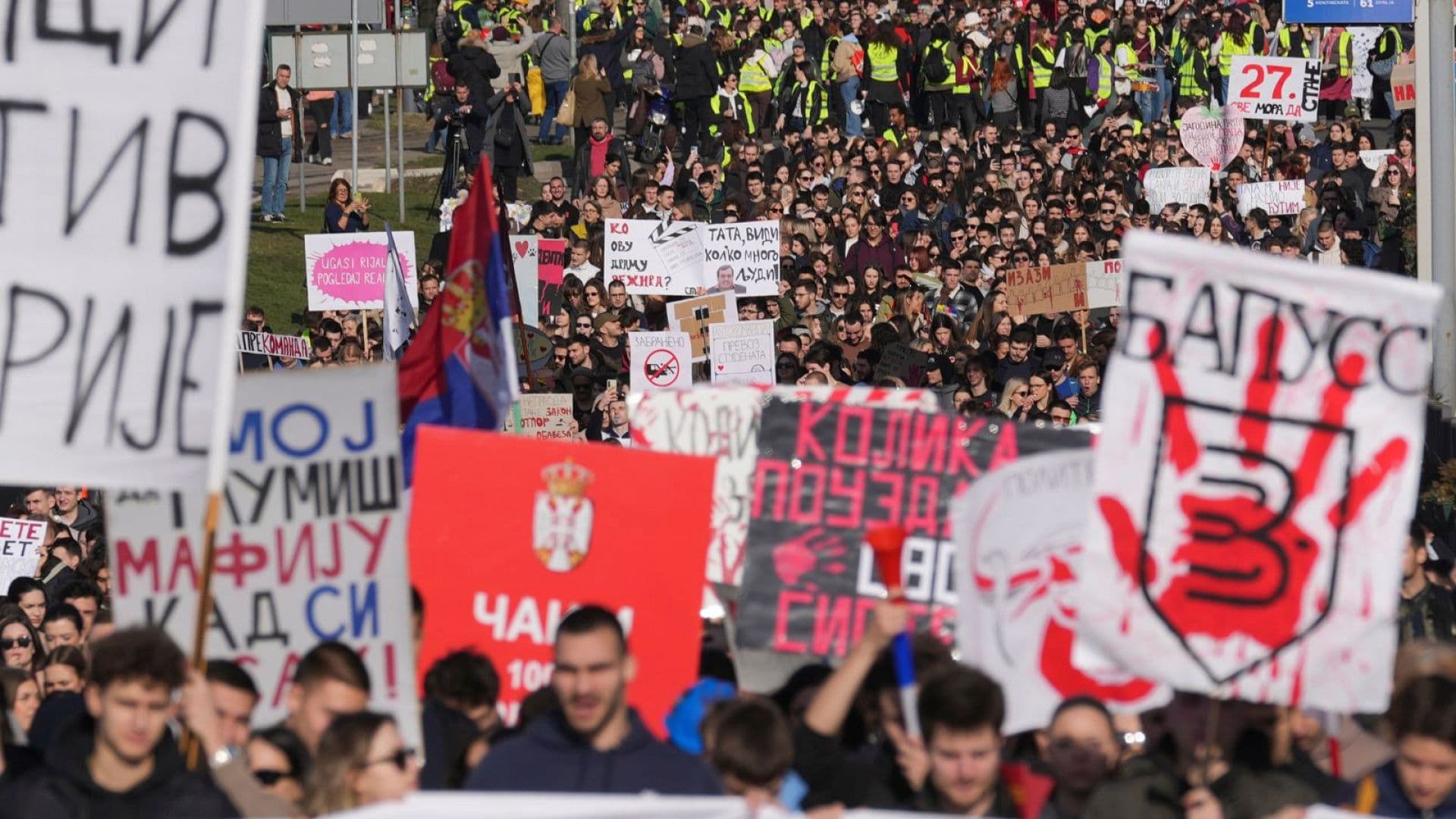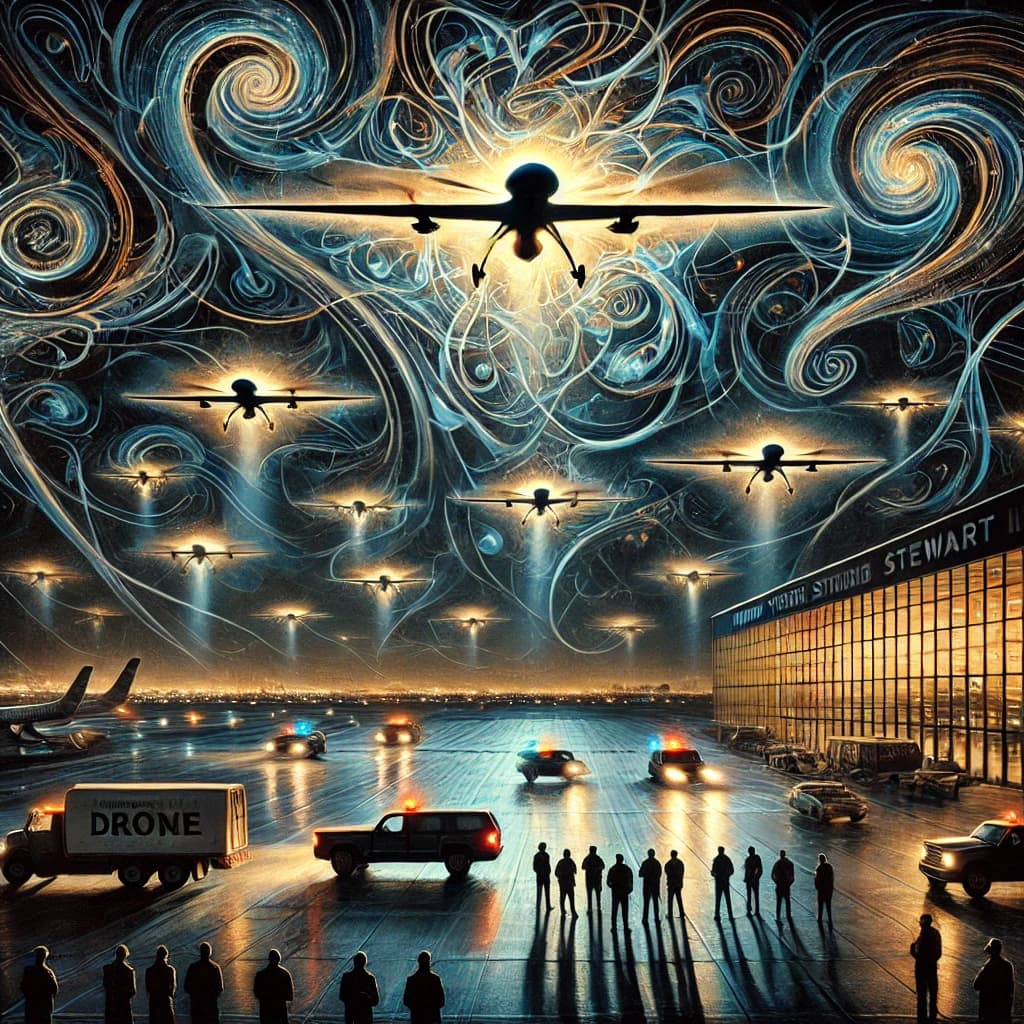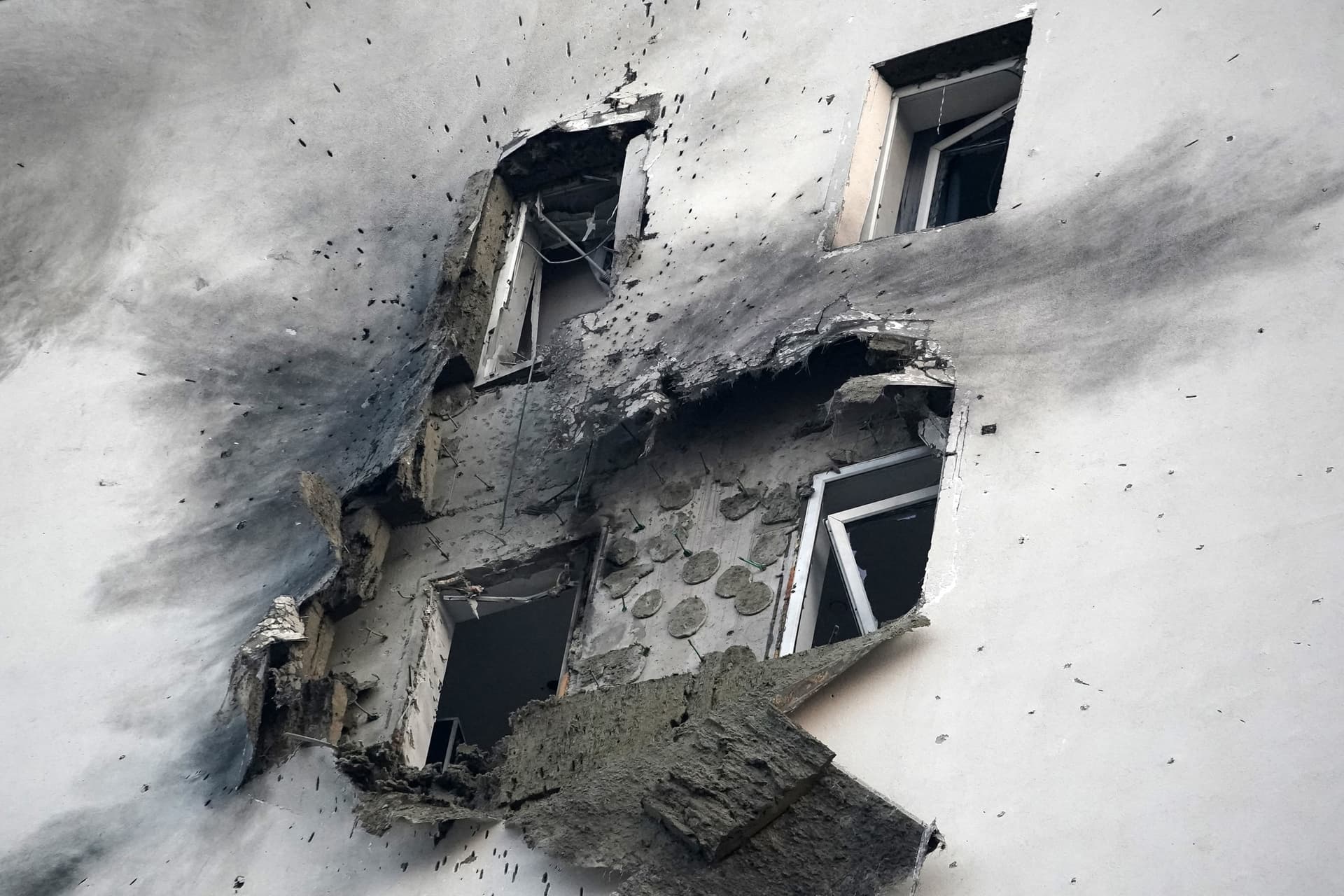Belgrade Students Lead Mass March Demanding Accountability and Elections
Thousands of students and supporters marched peacefully through Belgrade on Saturday to demand justice for 16 people killed when a railway station roof collapsed and for an attack on a student protest a year earlier. The demonstrations test Serbia's democratic institutions, raise questions about police conduct and legal accountability, and carry implications for the country's European integration prospects.

Thousands of anti government protesters, led by university students and academics, filled the streets of Belgrade on November 22 to press for accountability in two events that have become rallying points for a year long civic movement. The protesters called for criminal responsibility for those they say were involved in the Nov 1, 2024 collapse of a railway station roof in Novi Sad that killed 16 people, and for a fuller probe into an assault on student demonstrators in Belgrade last year.
The Novi Sad disaster touched off a largely peaceful nationwide campaign of campus led protests and vigils that at times rattled President Aleksandar Vucic and his Serbian Progressive Party. The movement has drawn tens of thousands into public squares across the country and has been sustained by students, professors and civil society groups demanding systemic reforms and transparency from institutions they view as captured by vested interests.
The march on Saturday was peaceful, reflecting the movement's emphasis on public accountability and legal process. Organizers insisted that those identified in the attack on students at the Faculty of Drama Arts a year earlier must face criminal charges, and they called for an investigation into who organized or instigated the violence. More than 30 supporters of the ruling party were involved in the clash last year, and four people were later sentenced for assault after plea bargains. Students say those steps fall short of full accountability.
Over the summer, several large demonstrations in Belgrade and other cities were broken up by police using stun grenades and tear gas, prompting criticism from rights watchdogs who accused officers of excessive force. Authorities have defended their response, saying on occasion that protesters attacked offices linked to the ruling party and its backers. The repeated confrontations have intensified scrutiny of law enforcement oversight and prosecutorial independence in Serbia.
The protests carry broader political stakes. For more than a decade President Vucic has dominated Serbia's political scene, and the student led movement has emerged as one of the most sustained challenges to his 13 year hold on power. Demonstrators on Saturday again demanded snap elections, hoping to translate street mobilization into electoral change. How those demands are handled will shape domestic politics in the months ahead.
There are also international dimensions. Serbia remains a candidate for European Union accession, and European institutions have long underscored rule of law benchmarks as central to that process. The handling of investigations into the Novi Sad tragedy and into violence against protesters will be watched by foreign governments and rights observers as indicators of Serbia's commitment to independent institutions and accountability.
As the movement approaches its second anniversary from the Novi Sad collapse, its leaders face a strategic choice between continued street pressure and efforts to institutionalize oversight through legal channels. The decisions made by prosecutors, courts and political leaders in the coming weeks will determine whether that pressure yields concrete accountability or further entrenchment of existing power structures.


